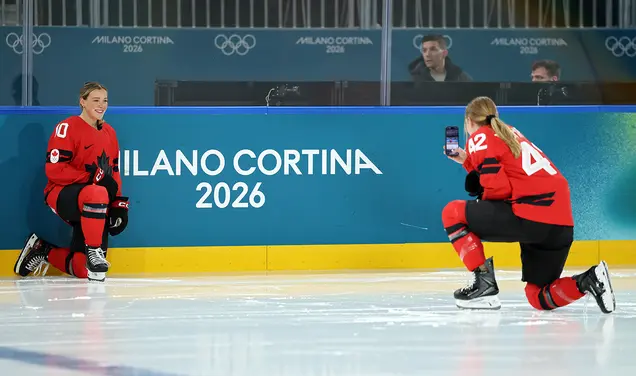A king on campus
Jordan's Abdullah II addresses chances for Middle East peace
A shiny, dark Town Car with tinted windows and diplomat license plates parallel parked on Nassau Street. The four dark-suited men inside disembarked to grab their morning coffee at a local restaurant. A helicopter circled above Alexander Hall, where police and Public Safety officers kept a close watch of students, faculty, and other guests who entered the building. Feb. 29 was not a typical morning at Princeton, as the campus prepared for a visit from King Abdullah II of Jordan. Abdullah drew four standing ovations in a nearly full Richardson Auditorium during an appearance that lasted just over a half hour. In his remarks about the Israeli-Palestinian conflict, he stressed the need for an urgent resolution, saying that in 2008, the parties are better positioned for peace than they have been in the last 60 years. Abdullah also pressed for leadership from the United States. "America's involvement is a critical success factor of [a long-term peace] strategy," he said. "We need a strong authority that can act and act swiftly." Abdullah described the Middle East as a region with many challenges, from creating jobs to improving education, but addressing those issues will be difficult without settling the region's "core problem," the dispute between Israelis and Palestinians. He advocated a two-state solution and widespread recognition of Israel, saying that "real security for Israel will occur when it is a neighbor among neighbors." After his talk, Abdullah fielded three questions from the audience, met with students, and departed for Washington, where he met with President Bush March 3.
Passing through
A lone figure walks along the south end of Princeton Stadium on the morning of March 1. The stadium plaza has become a popular thoroughfare for students, faculty, and staff navigating around the construction site for the new chemistry building. Photo by Frank Wojciechowski
PAW Web Exclusive: Gregg Lange â70's "Rally âRound the Cannon"
Capturing the essence of Princeton
Like any vibrant educational enterprise, Princeton is more of a buffet than an entrée. The many elements that contribute range from the Nassoons to the WMAP satellite to Pulitzer prizes to Dante, and it's very tough to combine them in a single occasion. Reunions are too frivolous, the 250th Convocation too formal, the Princetonian too, uh, Prince-y. I have progressed to the point, however, that I'm happy to defend two events of my experience, in combination, as a fair representation of Old Nassau. The first is the magnificent closing pyrotechnic lecture of Professor Hubert Alyea '24 *28. Known ex post facto as "Dr. Boom" - I don't recall anyone ever using the term while he was still actively giving the lecture - his hour of chemistry and sophistry was a primer in educational theory, beauty, humor, doggerel, and constant bedazzlement at the world around us, a paean to the joy of learning. His thesis was there's something new around every corner, that serendipity is the great spice of life, and that you'd be well advised to know it when you see it. ... Click here to read more
Names in the news
WNYC interviewed singer and songwriter Ruth Gerson â92, who has tapped a new stream of revenue by agreeing to have Pepsi sponsor a series of her concerts, performed in the living rooms of private homes. ... Former Senator Bill Bradley â65 and Woodrow Wilson School Dean Anne-Marie Slaughter â80 gave their opinions on what the next president should do in office in a blog post from New York University's Brennan Center for Justice. ... Two alumni were spotlighted in a Smithsonian Magazine story about young innovators in the arts and sciences: historian Daniela Bleichmar *05, whose work crosses disciplinary boundaries, and mathematician Terence Tao *96, a winner of the Fields Medal. Historian Kevin Kruse, an associate professor at Princeton, joined Bleichmar and Tao on the list of 37 innovators under age 36.
Great eight
Four winter sports teams have wrapped up Ivy League championships in the last four weeks, bringing Princeton's total for 2007-08 to eight. Last weekend, the women's swimming and diving team had a dominant performance at the Ivy meet, winning its third straight league title, and women's track and field edged Brown and Cornell at the Ivy League Indoor Heptagonals. The teams join men's hockey, men's squash, women's volleyball, field hockey, men's cross country, and women's cross country on the list of Tiger title-winners. Men's swimming is the next Princeton team that will vie for an Ivy championship. The men travel to Cambridge, Mass., for the Eastern Intercollegiate Swimming League Championships March 6-8. The top Ivy team at the EISL meet - a vestige of pre-Ivy days that also includes Navy - is named the Ivy champion.













No responses yet